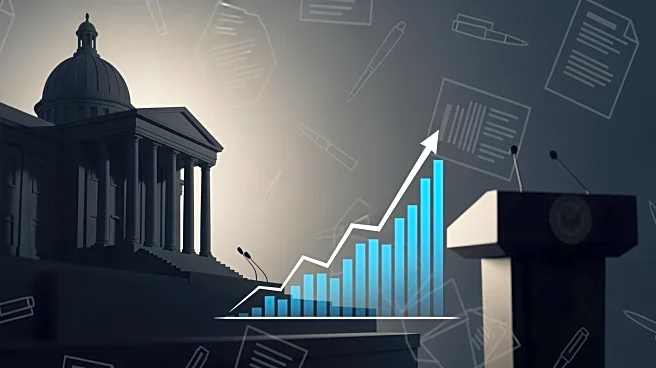What's Happening?
The U.S. government shutdown has reached its 15th day following the Senate's inability to pass a funding measure. This prolonged shutdown is causing increasing concern over potential impacts on healthcare
premiums. The failure to secure government funding has left many federal operations in limbo, affecting various sectors including healthcare. As the shutdown continues, there is growing anxiety among citizens and healthcare providers about the potential rise in healthcare premiums, which could result from disruptions in government services and funding allocations. The situation remains tense as lawmakers struggle to reach a consensus on budgetary issues.
Why It's Important?
The ongoing government shutdown has significant implications for the U.S. healthcare system and its stakeholders. With federal operations stalled, there is a risk of increased healthcare premiums, which could burden consumers and healthcare providers. This situation underscores the critical role of government funding in maintaining stable healthcare costs and services. The shutdown also highlights the broader economic and social impacts of political gridlock, affecting not only healthcare but also other essential services. As the shutdown persists, the pressure mounts on lawmakers to resolve budgetary disputes to prevent further economic and social disruptions.
What's Next?
If the shutdown continues, it is likely that healthcare premiums will rise, affecting millions of Americans. Lawmakers are expected to face increasing pressure from constituents and industry stakeholders to resolve the funding impasse. The next steps involve negotiations between political leaders to reach a budget agreement that can end the shutdown. Stakeholders in the healthcare industry may also engage in advocacy efforts to mitigate potential premium increases and ensure continued access to healthcare services. The resolution of this issue will require bipartisan cooperation and compromise.









